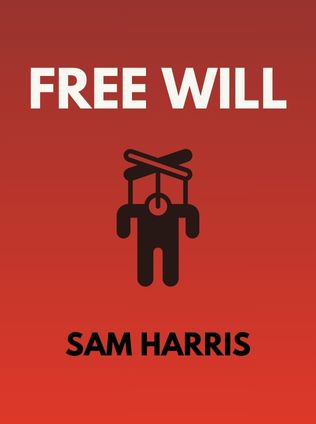
About the Author
Sam Harris is an influential philosopher, neuroscientist, and author known for his thought-provoking works on topics such as ethics, religion, and the nature of the mind. Harris holds a Ph.D. in cognitive neuroscience from UCLA and has authored several best-selling books, including "The End of Faith," "The Moral Landscape," and "Waking Up." His work often challenges conventional wisdom and delves deeply into the complexities of human consciousness, morality, and spirituality. In "Free Will," Harris takes on the profound and contentious topic of whether humans truly have the freedom to choose their actions, or if our decisions are predetermined by a complex web of external factors and neurological processes.
Main Idea
The central argument of "Free Will" is that the concept of free will is an illusion. Harris posits that our sense of making free choices is misleading because our thoughts and actions are determined by prior causes, including genetics, upbringing, and random events that we cannot control. Despite the strong intuition that we are autonomous beings capable of making independent decisions, Harris argues that this is not supported by what we know about the brain. Instead, he suggests that accepting the lack of free will can lead to a more compassionate and ethical way of living, as it forces us to reconsider notions of moral responsibility, justice, and personal achievement.
Table of Contents
- Introduction to the Illusion of Free Will
- Determinism: The Inescapable Web of Causality
- Libertarianism and Compatibilism: The Philosophical Debate
- Everyday Perceptions of Free Will
- The Case Against Free Will: Neuroscientific Evidence
- Implications for Ethics and Justice
- Living Without Free Will: The Path Forward
Introduction to the Illusion of Free Will
At the outset of "Free Will," Sam Harris challenges the reader to reconsider one of the most deeply held beliefs in human society: the belief in free will. He begins by examining the intuitive sense that we are the authors of our actions, responsible for the choices we make and capable of influencing the course of our lives. This belief is not just a philosophical stance but is embedded in our legal systems, moral judgments, and everyday interactions.
However, Harris quickly dismantles this notion by introducing the concept of determinism, which suggests that every event, including human thoughts and actions, is the result of a preceding cause. This chain of causality stretches back indefinitely, meaning that our current actions are the inevitable outcome of past events. Harris argues that if our thoughts and intentions are determined by factors outside of our conscious control, then the concept of free will becomes untenable.
Sign up for FREE and get access to 1,400+ books summaries.
You May Also Like
The Subtle Art of Not Giving a F*ck
A Counterintuitive Approach to Living a Good Life
By Mark MansonHow To Win Friends and Influence People
The All-Time Classic Manual Of People Skills
By Dale CarnegieFreakonomics
A Rogue Economist Explores the Hidden Side of Everything
By Steven D. Levitt and Stephen J. Dubner



















